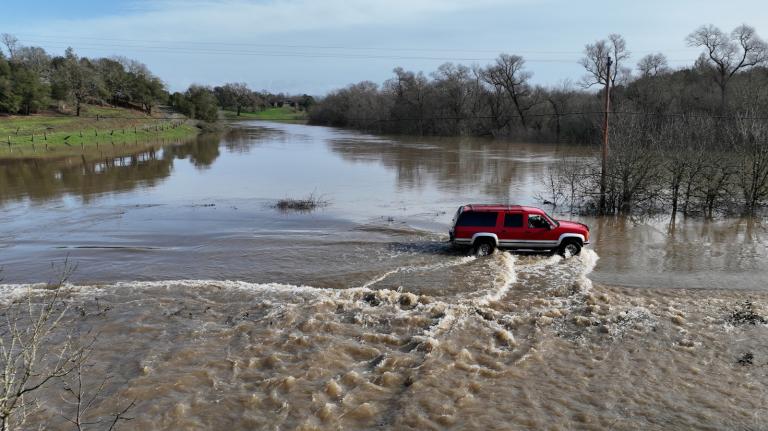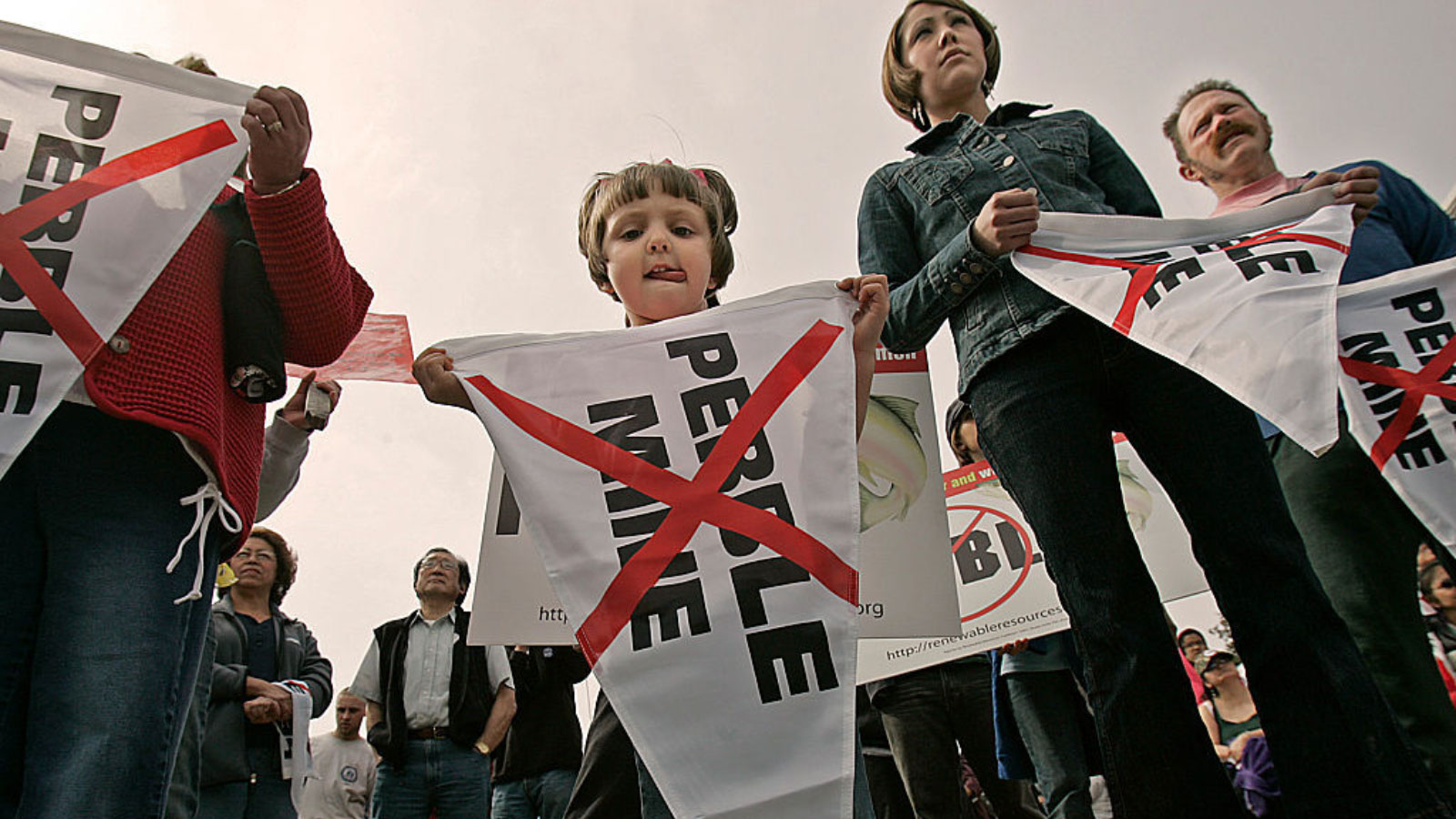The Environmental Protection Agency used the Clean Water Act on Monday to veto a proposed copper and gold mining project near Alaska’s Bristol Bay. Not only does the veto apply to the Pebble mine project, which would have dug into the path of the world’s largest sockeye salmon run, it prevents any similar developments from moving forward in the watershed.
“While there are changes in nuance at the various stages, it has been clear for some time that EPA was determined to do something to safeguard the national treasure that is the Bristol Bay Fishery,” said Western Director and Senior Attorney with Natural Resources Defense Council Joel Reynolds, who was involved in the fight against the Pebble mine.
“It’s the wrong place for any large-scale mining project,” he said.
Plans for the mine date back to the early 2000s, when the California-based company Pebble LP proposed a massive, open-pit mine roughly 200 miles southwest of Anchorage, Alaska. Bristol Bay and its watershed sit on huge deposits of gold and copper. According to Pebble LP, the mine would produce hundreds of thousands of tons of the minerals each year, which it says are essential to the green energy transition (copper is often used in clean energy resources like solar and hydro power, and demand for the mineral is skyrocketing as a result). The company also said the mine would create jobs, employing up to 2,000 people.
But with a footprint over 300 square miles, environmental groups argued the mining project would essentially eradicate the Bristol Bay fishery, along with 3,500 acres of wetlands, ponds, and lakes. Sockeye salmon play an important role in Alaska’s economy. Up to 30 million salmon are caught each year during the commercial fishing season, according to the Alaska Department of Fish and Game. The industry employs roughly 15,000 jobs in the area and generates around $2 billion annually.
The Bristol Bay fishery is also an important cultural part of Alaska Native communities. “For us, this is about our Indigenous way of life,” said Alannah Hurley, Executive Director of United Tribes of Bristol Bay, a tribal consortium that has played a crucial role in the protection of Bristol Bay and first petitioned the federal government to use its veto power in 2010. “This is about our ability to remain Indigenous as we move into the future in our traditional homeland.”
In the last 30 years, the EPA has only used its Clean Water Act veto power three times. The agency made similar determinations in 2011 and 2008, blocking a surface coal mine in West Virginia and a flood control project in Mississippi, respectively. As part of its reasoning behind the Bristol Bay veto, the agency focused on the environmental impact of the mine’s waste, banning the disposal of material from the project’s construction and operation.
“EPA has determined that certain discharges associated with developing the Pebble deposit will have unacceptable adverse effects on certain salmon fishery areas in the Bristol Bay watershed,” the agency wrote in its summary of the final determination.
Following the announcement from the EPA, Pebble LP called the decision “unlawful” and “unprecedented” in a press release, saying it would likely pursue litigation. “The Pebble Deposit is an asset belonging to the people of Alaska,” the company wrote.
Alaska Governor Mike Dunleavy also spoke out against the EPA’s decision. “EPA’s veto sets a dangerous precedent. Alarmingly, it lays the foundation to stop any development project, mining or non-mining, in any area of Alaska with wetlands and fish-bearing streams,” Dunleavy said in a written statement.
But Reynolds said the governor’s warning mischaracterizes the agency’s intentions. The veto “has meaning for the upper Bristol Bay Watershed … It does not, by any stretch of the imagination, suggest that EPA will be pursuing similar action elsewhere in Alaska.”
The mine may not be not dead in the water, but advocates say the EPA’s announcement is a massive victory for those concerned about the health of the Bay.
“Today, the Earth won,” Reynolds said.



